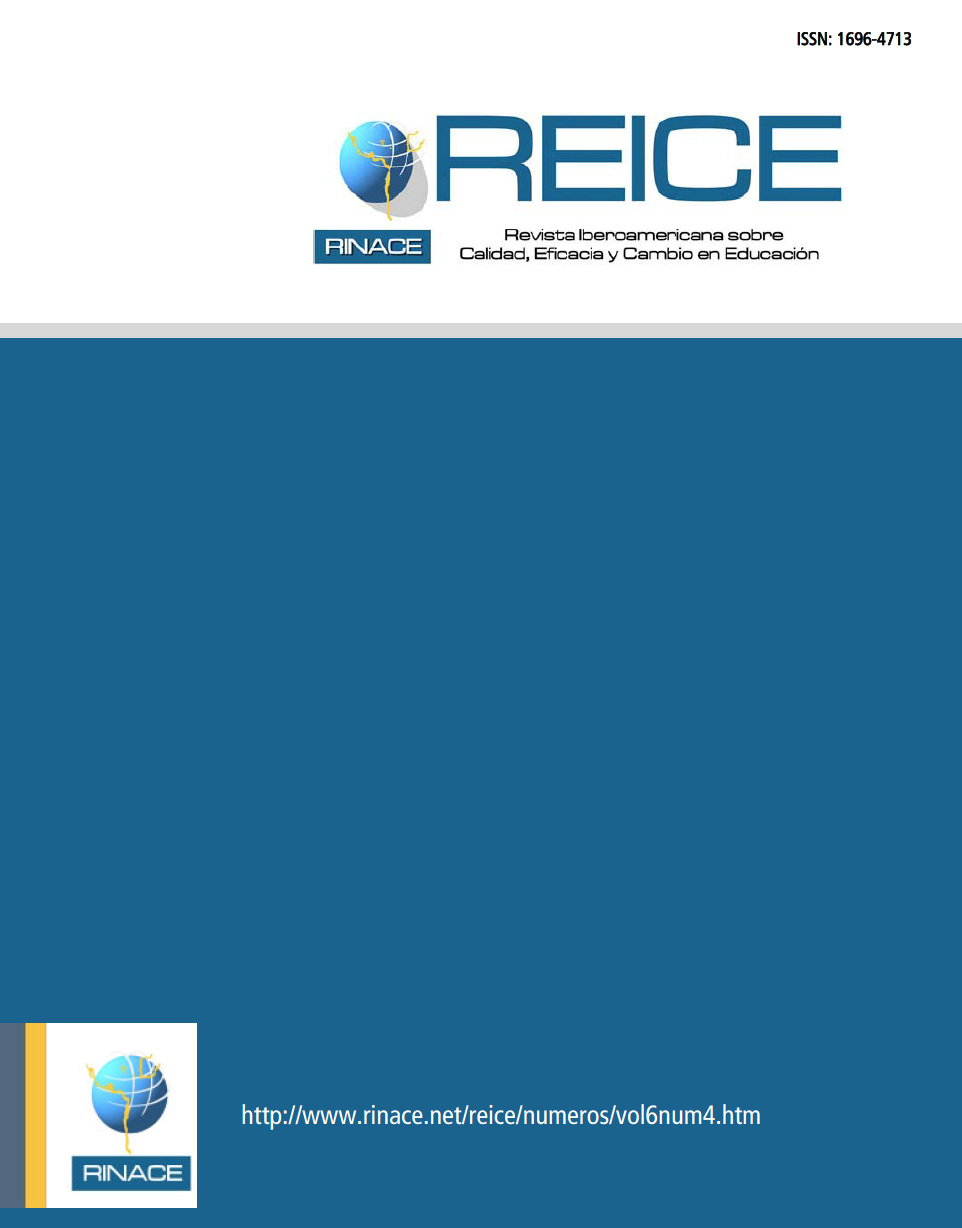Leadership and Management Competencies for School Effectiveness: Experience of the School Management Model of Fundación Chile
Keywords:
Quality, Effectiveness, Change, Improvement, Equity, Innovation.Copyright (c) 2016 REICE. Iberoamerican Journal on Quality Effectiveness and Educational Change

This work is licensed under a Creative Commons Attribution-NonCommercial-NoDerivatives 4.0 International License.
Abstract
One of the components of the Educational Reform that takes place in Chile is the Full School Day (JEC). Since 1997, and gradually, 6,718 schools and high schools (80% of the universe) have been incorporated into this system and it is expected that in 2010 all educational establishments will have a minimum of 38 hours in Basic Education and 42 hours in the Middle Education (MINEDUC, 2004)
The extension of the school day arises as a response to the problem of lack of time for student learning and for the teachers themselves committed to different pedagogical innovations within the framework of the current reform. The fundamental objective of the JEC - as stated in its foundations - is the restructuring of the use of time in schools to put it at the service of the improvement of learning and the training of students and students.
This paper will present the results of an ongoing study on the use and management of time in the classroom by professors of establishments integrated to the JEC and who have participated in the Teaching Performance Evaluation System.
A total of 40 pedagogical hours of classes recorded in video are analyzed. The observed classes are defined as a communicative and conversational interaction. The method is based on Conversation Analysis and the teacher-student exchange in the classroom is defined as a unit. The description and classification used the Videograph as a computer support.
Among other aspects, the predominance of the professor's speech and the strong framing he makes of the class is demonstrated. In most of the time, the teacher directs his speech to the class as a whole; The communicative style does not produce great differences among the students within the group course. On average, 17.6% of class time is spent on exhibiting content as such. In 22.5% of the time, and in a way associated to said contents, the teachers deliver instructions or regulate the activities proposed. These interventions vary strongly as the class progresses over time. It is concluded that most of the observed practices have not transformed the way of conceptualizing, managing and using time in the classroom. There is a tension between the concept of time that operates in practice and the requirements demanded by innovative experiences in the classroom; the use of materials and texts, among others.
